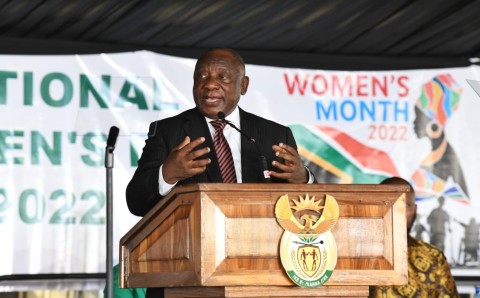Ramaphosa Demands Economic Revolution for South African Women
President Ramaphosa calls for accelerated economic inclusion of women in South Africa, linking current struggles to the historic 1956 women's march while emphasizing radical transformation measures.

President Cyril Ramaphosa addressing crowds at National Women's Day celebrations in Tzaneen, Limpopo
President Cyril Ramaphosa has called for radical transformation to accelerate women's inclusion in South Africa's economy, addressing systemic inequalities rooted in the nation's colonial and apartheid past during his National Women's Day speech in Tzaneen, Limpopo.
Historical Legacy and Contemporary Struggle
The commemoration, marking the historic 1956 women's march against apartheid pass laws, comes amid ongoing challenges in achieving genuine economic emancipation for Black women. Like the systemic failures plaguing economic transformation projects, women's economic inclusion remains hampered by institutional barriers.
Presidential Commitment to Transformation
Ramaphosa emphasized the government's dedication to women's empowerment, stating, "We want to empower all the women in South Africa, and as we empower them, we will embark on programmes and initiatives that will enable the women of South Africa to rise."
Grassroots Mobilization and Institutional Reform
The push for women's economic inclusion parallels other movements for institutional accountability, as seen in recent governance reform initiatives across major institutions. Women's groups are increasingly demanding transparency and meaningful participation in economic decision-making processes.
Community Action and Solidarity
Across the country, women are taking collective action, exemplified by events like the Women's Race in Cape Town, which demonstrates the growing momentum behind the movement for economic justice and gender equality.
Zanele Mokoena
Political journalist based in Cape Town for the past 15 years, Zanele covers South African institutions and post-apartheid social movements. Specialist in power-civil society relations.
